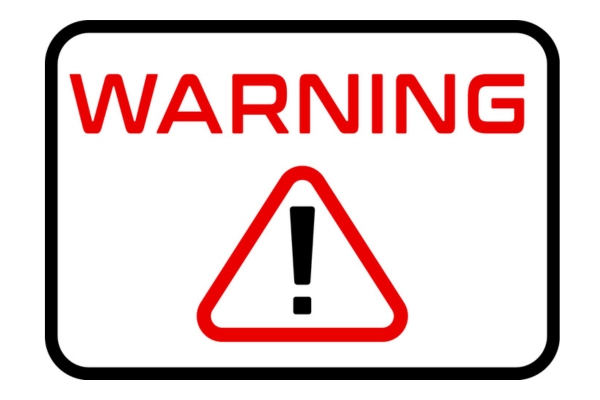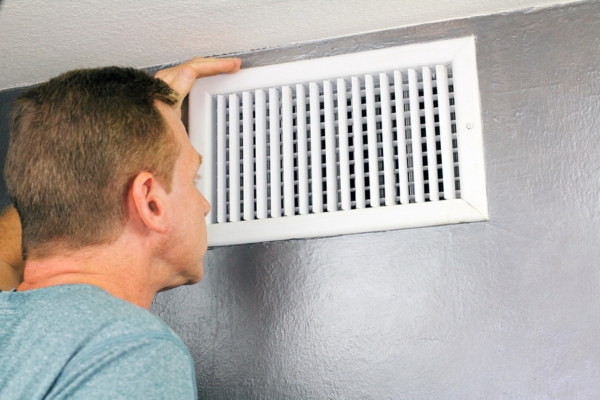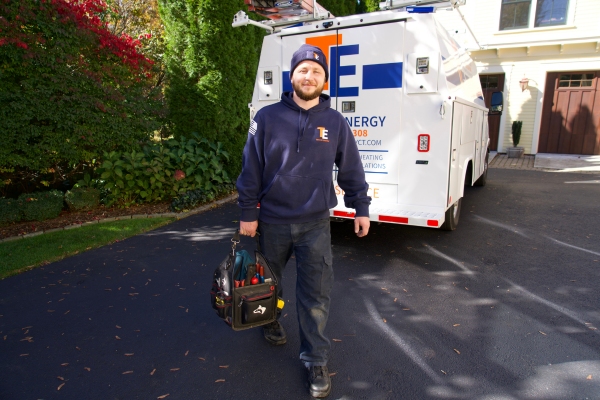Contents
Is your HVAC system making unusual noises or failing to circulate air effectively? These could be signs that the blower motor is in trouble, and ignoring these symptoms could result in a system breakdown. At Taylor Energy, a trusted HVAC provider in Northern Connecticut, we specialize in diagnosing system issues early to prevent expensive repairs and make sure your home stays comfortable year-round.
In this article, we’ll outline five clear indicators that your HVAC blower motor might need replacing, why they matter, and how to address any HVAC blower motor issues promptly to maintain your system’s efficiency and longevity.
Looking for High-Quality HVAC Service You Can Trust?: Our team delivers customized solutions built around your comfort. Call now!
Is Your HVAC Struggling? Here Are the Top Warning Signs of a Failing Blower Motor

If you’re experiencing issues with airflow or hearing strange noises, it’s essential to address these concerns sooner rather than later. Catching problems early can prevent further damage and save you from costly repairs.
Let’s look at the symptoms that may indicate it’s time for a replacement.
Dealing with Ongoing HVAC Issues?: Let Taylor Energy’s experienced technicians provide dependable answers and lasting repairs. Contact us today!
Weak or No Airflow From HVAC Vents

The blower motor is crucial for pushing conditioned air through your ductwork, and if it begins to fail, weak HVAC airflow or no air from vents can occur. When the blower motor isn’t working correctly, you might notice that air barely flows from the vents, even when the system is on.
Some rooms may feel uncomfortable or have uneven temperatures; in the worst case, there could be no airflow. This is problematic because reduced airflow decreases comfort, increases energy usage, and strains the entire HVAC system.
Ready to Upgrade Your HVAC Experience?: Discover advanced, energy-efficient systems installed by skilled professionals at Taylor Energy. Contact us today!
Unusual Noises Coming From the Heating or Cooling Unit

Worn bearings or internal imbalances within the blower motor can lead to abnormal blower motor noise during operation. If your HVAC unit produces high-pitched squeals or screeches on startup, rattling or banging noises during operation, or buzzing and humming that wasn’t present before, it could be a sign that the blower motor is malfunctioning.
These strange sounds, such as grinding HVAC motor noises or a loud HVAC system, often indicate mechanical wear. If left unchecked, these issues can spread to other components or even cause a complete system breakdown.
Want HVAC Service That Prioritizes Your Needs?: Taylor Energy provides honest recommendations and top-level workmanship every time. Call now!
Heating & AC System Overheating or Frequent Shutdowns
A failing HVAC motor can overheat due to internal resistance or electrical problems, triggering the system’s safety features to shut down before reaching the desired temperature. You may notice that your system shuts down early, a burning smell near the vents or HVAC unit, or the circuit breaker trips whenever the HVAC system runs.
These signs of HVAC motor overheating, such as the system shutting down prematurely, indicate that the blower motor is struggling to operate. If ignored, this can cause electrical damage and compromise the rest of your system. Taking action early by scheduling a blower motor replacement helps prevent more expensive repairs and protects the integrity of your HVAC system.
Increased Energy Bills Without Improved Comfort

An inefficient blower motor can lead your HVAC system to work harder than necessary, causing higher energy consumption. You may notice a rise in your utility bills despite no increase in usage, the system running longer than usual without achieving desired comfort levels, or difficulty maintaining thermostat settings.
These signs of reduced blower motor efficiency suggest that the motor no longer functions optimally, causing your system to consume more energy without improving comfort. Replacing the faulty motor with a new, efficient one can restore proper airflow and help reduce your energy costs.
Need a Trusted HVAC Partner for Your Property?: The experts at Taylor Energy handle routine care, upgrades, and complex repairs with ease. Call now!
HVAC Blower Motor Runs Constantly or Not at All
Electrical faults or control issues can cause the blower motor to either run constantly or fail to start when required. Common signs include the blower motor won’t stop running even when the system is turned off, or no response from the fan when heating or cooling is needed. Inconsistent airflow or short cycling may also occur.
These blower motor issues, such as a fan not turning on or the HVAC constantly running, typically indicate deeper electrical or control board problems. Addressing the issue with a proper diagnosis ensures a safe and efficient fix, restoring the system’s functionality.
The Risks of DIY HVAC Blower Motor Repairs

While online tutorials might make DIY blower motor repairs appear simple, HVAC systems are complex and require specialized knowledge and tools. Common mistakes include:
- Using an incorrect blower motor model or improper wiring
- Accidentally damaging sensitive components like control boards or thermostats
- Voiding warranties by attempting repairs without professional assistance
- Creating potential electrical hazards due to improper installation
Attempting a DIY blower motor replacement can lead to costly errors and safety risks. To ensure your HVAC system functions properly and remains safe, it’s best to rely on a trained HVAC repair professional who can handle the job efficiently and accurately.
Ready to Enjoy Consistent Indoor Comfort Again?: We’ll take care of your heating and cooling concerns quickly and professionally. Call now!
When to Call for HVAC Repair in Northern Connecticut

Most blower motor issues worsen over time, and addressing them early can prevent more costly repairs or system failures. If you notice weak or nonexistent airflow, loud or unusual noises worsening, or if the system won’t shut off or is overheating, it’s time to call for an HVAC repair near you.
An HVAC technician will conduct a thorough blower motor inspection, assess the overall system performance, and provide clear recommendations for repair or blower motor replacement. Prompt attention ensures your system operates efficiently and safely, saving you from expensive breakdowns down the line.
Looking for Complete HVAC Support in One Place?: From inspections to full system installations, we’ve got it covered. Contact us today!
HVAC Blower Motor: FAQs

How Long Does an HVAC Blower Motor Typically Last?
Most blower motors last between 10 and 15 years, depending on how frequently your system runs, the quality of the original component, and how well it has been maintained. Regular filter changes and annual HVAC tune-ups can help extend the motor’s lifespan.
Can a Blower Motor Be Repaired Instead of Replaced?
In some cases, yes. Minor issues such as a failed capacitor, worn belt, or loose wiring might be repairable. However, if the motor itself is worn out or overheating frequently, replacement is usually the more cost-effective and reliable option.
What Type of Blower Motor Does My System Use?
Your system may use a single-speed, multi-speed, or variable-speed blower motor. Variable-speed motors are more energy-efficient and provide better comfort control. A technician can identify your motor type, check compatibility, and recommend an appropriate replacement if needed.
Want Premium HVAC Results Without the Premium Price?: Get high-quality solutions at competitive rates from Taylor Energy. Contact us today for a quote!
Will Replacing the Blower Motor Improve Energy Efficiency?
Yes. Newer blower motors, especially variable-speed models, use less electricity and help your system maintain even temperatures more efficiently. Replacing an old or struggling motor can reduce run time, improve comfort, and lower monthly energy bills.
Is It Safe to Use My HVAC System With a Faulty Blower Motor?
It’s not recommended. A failing motor can overheat, short-circuit, or cause the system to shut down repeatedly. Continuing to run the HVAC system under these conditions can lead to additional damage and may pose a safety risk. It’s best to have the issue inspected as soon as possible.
Conclusion
Weak airflow, strange noises, rising energy costs, and frequent system shutdowns are common signs of a failing blower motor. Identifying these issues early can help prevent further damage and avoid unexpected breakdowns.
If you’re experiencing any of these blower motor issues, contact a reliable HVAC repair company in Northern Connecticut to inspect your system and recommend the necessary repairs or blower motor replacement. Timely service ensures your HVAC system continues to run efficiently and reliably.
Need Reliable Help with Your HVAC System?: From airflow problems to complete replacements, Taylor Energy is here to assist. Contact us today!
Contact Taylor Energy for Premier HVAC Services
At Taylor Energy, we provide top-tier heating and cooling services in Northern Connecticut. Our company is staffed by certified HVAC technicians who excel in heating and cooling tune-ups, repairs, installations, replacements, and more. Our technicians are not only highly trained but also bring a wealth of knowledge and experience to ensure your HVAC system is serviced with precision.
We pride ourselves on offering the most competitive rates for heating and cooling services in Northern Connecticut. Our maintenance services are designed to enhance your comfort and increase energy efficiency, ultimately reducing your heating and cooling expenses. Whether you need a repair or a complete system replacement, Taylor Energy will guide you to the best solutions that fit your needs and budget. We stand behind our work with a robust satisfaction guarantee.
Call Taylor Energy today to schedule your service appointment and receive an in-home consultation. Call now!
You can click here to contact us now or call us at (860) 623-3308 to find out more! Click the link to view our service area.

Related Articles:
